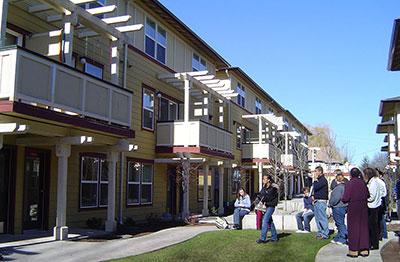 Tools and resources that help preserve affordable housing face continuous challenges, leaving more than a million units at risk.
Tools and resources that help preserve affordable housing face continuous challenges, leaving more than a million units at risk.
The contracts that maintain affordability for low-income apartments will expire during the next 10 years, including 530,000 units with U.S. Department of Housing and Urban Development (HUD) project-based rental assistance. More than 475,000 units with federal Low Income Housing Tax Credits will also expire, according to Affordable Housing Finance.
Rising rents increase pressure on property owners to convert properties to market rate, and the recent tax law, The Tax Cuts and Jobs Act, lowered the corporate tax rate and in turn reduced the need for tax credits. While Congress increased the number of 9 percent housing credit allocations during the next four years, it will only produce about 28,000 new homes.
So developers are turning to new tools.
“Our members and our affiliate, the National Affordable Housing Trust, are seeing an increased use of non-LIHTC equity from real estate investment trusts and other private acquisition funds,” says Andrea Ponsor, executive vice president of policy Stewards of Affordable Housing for the Future. “The terms on these funds are often three to 10 years rather than the longer term of a LIHTC deal.”
To learn more, go here: http://www.housingfinance.com/developments/new-challenges-to-preserving-affordable-housing
